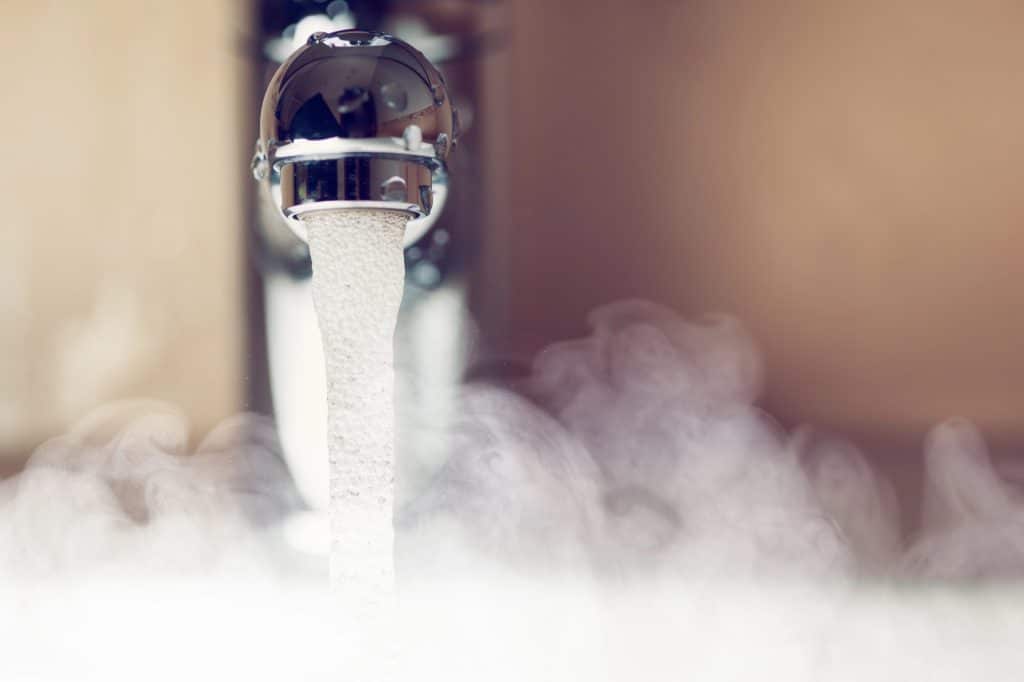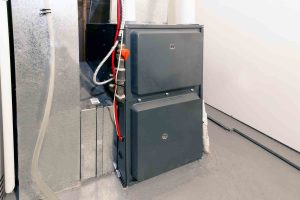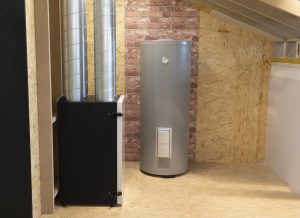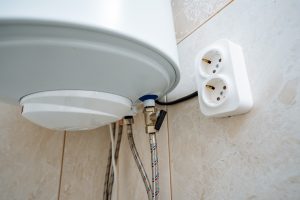Unexpected noises from household appliances can be unsettling, especially when it comes from your water heater. A water heater hissing sound can catch many homeowners off guard, leaving them wondering about the cause. While some noises are harmless, others might indicate underlying issues that need attention. Understanding these sounds helps maintain the efficiency and longevity of your water heating system.
Water heaters are essential for comfort, providing hot water for showers, cleaning, and cooking. However, when a hot water heater hissing noise occurs, it can raise concerns about potential repairs and costs. It’s important to know when a noise is just a part of normal operation or a sign that something needs fixing. By learning about these sounds, you can avoid unnecessary expenses and ensure your appliance runs smoothly.
In this article, we will explore the common causes of water heater noise, particularly the hissing sound. We’ll discuss when these noises become a cause for concern and when it’s time to call in an expert. Understanding these factors not only helps in maintaining your water heater but also in managing costs effectively. For instance, knowing the average yearly cost of water heater maintenance in Arizona can help you budget for regular upkeep and avoid unexpected expenses.
Common Causes of Water Heater Hissing
A water heater making a hissing sound can be due to several reasons. One common cause is sediment build-up inside the tank. Over time, minerals in the water can settle at the bottom of the tank, creating a layer that makes the heater work harder to heat the water. This can lead to overheating and a hissing noise as the water bubbles through the sediment layer.
Another reason for a water heater hissing sound could be issues with the pressure relief valve. This valve is designed to release excess pressure from the tank, preventing dangerous pressure build-ups. If it malfunctions or becomes clogged, it can lead to hissing as steam or air escapes through the valve. Regular maintenance can help prevent these issues by ensuring all components function correctly.
Condensation can also lead to hissing noises, particularly in newer installations or during temperature fluctuations. When cold water enters a hot tank, condensation forms on the outside, which may create a hissing sound as it evaporates. Regular checks and maintenance can help manage these common issues and extend the lifespan of your appliance. To understand more about how long water heaters last and what affects their lifespan, you might find it helpful to learn what to expect from your water heater’s lifespan.
The Role of Pressure Relief Valves
Pressure relief valves play a crucial role in maintaining the safety and functionality of your water heater. These valves are designed to release excess pressure from the tank, preventing potential hazards like explosions. When functioning correctly, they ensure that your water heater operates safely and efficiently.
A malfunctioning pressure relief valve can lead to a hissing sound as steam or air escapes from the tank. This noise indicates that the valve is releasing pressure to prevent damage. However, if this sound becomes frequent or continuous, it could signal that the valve is not working properly and needs attention.
If pressure issues remain unresolved, they could lead to more significant problems within your home’s plumbing system. Leaks or other malfunctions may arise, affecting not just your water heater but other appliances as well. For example, if you experience leaks elsewhere in your home, it might be worth exploring common culprits of leaks to understand broader implications and necessary actions.
Intriguing Facts About Water Heater Hissing Sounds– A water heater may hiss due to sediment build-up. This can affect its lifespan and efficiency. Learn more about water heater longevity. – Pressure relief valves help prevent excessive pressure. A malfunctioning valve can cause hissing. If unresolved, it may lead to larger issues, similar to those found in furnace leaks. – Condensation inside the tank often creates hissing sounds, especially in areas with high humidity. This can be more common in places with varying water hardness. – Regular maintenance, including sediment removal, can help prevent hissing noises. Adjusting settings for optimal performance is crucial, as detailed in efficiency tips. – Professional inspection may be necessary when hissing persists. Experts can offer solutions tailored to specific needs, highlighting why there is no one-size-fits-all remedy in plumbing maintenance. – Homeowners can adopt simple tips to maintain their water heaters and avoid hissing sounds. Regular checks and timely interventions can keep your system running smoothly, as advised in maintenance guides. |
Condensation Within the Tank
Condensation within a water heater tank can sometimes lead to a hissing noise, particularly in newer installations. This occurs when cold water enters the tank and meets the hot surfaces, causing condensation. The resulting water droplets can create a hissing sound as they evaporate. Temperature fluctuations and high humidity levels often exacerbate this issue, making it more noticeable in certain climates.
In areas with high humidity or significant temperature changes, such as Phoenix, this phenomenon might be more prevalent. The water hardness in Phoenix can also contribute to the condensation process, as mineral deposits may affect how efficiently the water heater operates. Understanding these geographical factors can help homeowners better manage and anticipate potential hissing noises.
While condensation is generally harmless, it is essential to monitor the situation to ensure it does not indicate a more severe problem. Regular maintenance and inspections can help identify whether the hissing is due to condensation or if there are other underlying issues that need attention.
Importance of Professional Inspection
Professional inspection becomes imperative when dealing with persistent water heater noise, including hissing sounds. Experts possess the knowledge and tools necessary to accurately diagnose any issues and ensure the safe operation of your water heater. Their expertise can pinpoint whether the noise stems from simple condensation or a more complex problem that requires immediate attention.
Professionals can offer tailored solutions based on specific household needs, ensuring that your water heater functions optimally. Since there is no one-size-fits-all remedy in water treatment, consulting a professional provides the information needed to make an informed decision. Recognizing signs that you need plumbing maintenance can also help determine when professional intervention is necessary.
Ultimately, engaging with a professional not only addresses current issues but also helps prevent future problems, maintaining the efficiency and longevity of your water heater system.
Routine Maintenance Tips
Adopting routine maintenance practices can help homeowners avoid hissing noises and ensure their water heaters function efficiently. Regular flushing of the tank is crucial to remove sediment that can cause a heater making hissing sound. This simple action can significantly enhance performance and extend the appliance’s lifespan.
Checking and adjusting settings also play a vital role in maintaining efficiency. Homeowners should regularly monitor the pressure valve to ensure it operates correctly, preventing unnecessary water heater noise. Adjusting settings can also help maximize efficiency, as outlined in guides on optimizing water heater settings.
These maintenance tips not only address common issues but also provide peace of mind by reducing the likelihood of unexpected breakdowns. For further insights and clarifications, readers can refer to the FAQ section for additional information.
Water Heater Hissing Sound FAQs
What are the signs that my water heater needs servicing?
Can I fix a hissing water heater myself?
Does hard water contribute to hissing noises?
How often should my water heater be inspected?
Are there particular brands less prone to making noise?
Embrace Preventative Measures for Your Water Heater
Understanding the sources of hissing sounds in your water heater is key to maintaining its efficiency and longevity. Addressing these noises not only prevents potential damage but also saves on costly repairs. By being proactive, you can ensure your water heater operates smoothly and reliably. Regular maintenance, such as flushing out sediment and checking pressure valves, plays a significant role in keeping your unit in top shape. These simple steps help maintain energy efficiency and extend the lifespan of your appliance.
When noises persist, or if you notice any unusual signs, consulting a professional is a wise decision. Experts provide tailored solutions, ensuring you have all the information needed to make the best choice for your home. Remember, there is no one-size-fits-all approach to water heater maintenance. Each household has unique needs, and a professional can help identify the right strategy for you. Prioritize routine check-ups and stay informed about your water heater’s condition to enjoy peace of mind and cost savings.
Conclusion
Recognizing the importance of understanding water heater noises, especially hissing sounds, is crucial for effective preventive maintenance. Paying attention to these warning signs and engaging with professionals for complex issues fosters a healthier home environment. Don’t wait for minor problems to escalate into major ones. Instead, take action today.
Ensure the longevity and efficiency of your water heater by scheduling routine inspections. This proactive approach will not only save you money but also provide peace of mind. Embrace the opportunity to enhance your home’s water heating system and maintain a comfortable living space. Schedule a Water Heater Inspection today and take the first step towards a more efficient and reliable system.
Schedule a Water Heater Inspection














